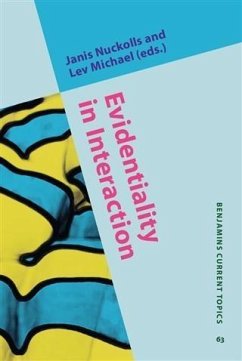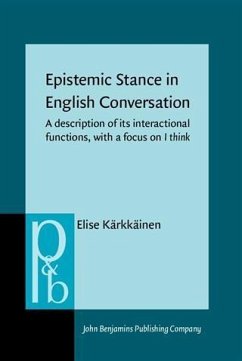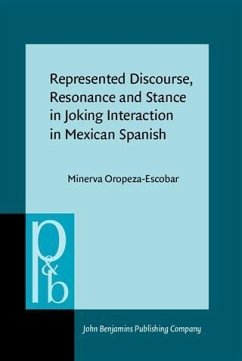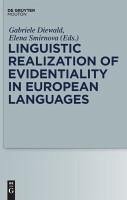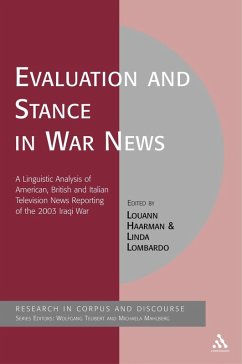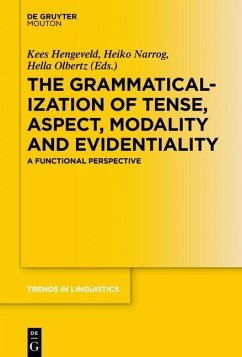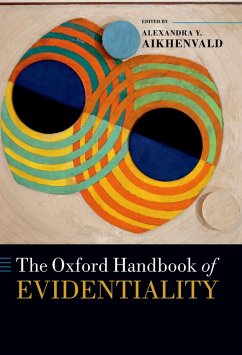
Evidentiality and Epistemological Stance (eBook, PDF)
Narrative Retelling

PAYBACK Punkte
58 °P sammeln!
This book explores the discourse pragmatics of reportive evidentiality in Macedonian, Japanese and English through an empirical study of evidential strategies in narrative retelling. The patterns of evidential use (and non-use) found in these languages are attributed to contextual, cultural and grammatical factors that motivate the adoption of an 'epistemological stance' - a concept that owes much to recent trends in Cognitive Linguistics. The patterns of evidential strategies found in the three languages provide a fine illustration of the balancing act between speakers' expressions of their o...
This book explores the discourse pragmatics of reportive evidentiality in Macedonian, Japanese and English through an empirical study of evidential strategies in narrative retelling. The patterns of evidential use (and non-use) found in these languages are attributed to contextual, cultural and grammatical factors that motivate the adoption of an 'epistemological stance' - a concept that owes much to recent trends in Cognitive Linguistics. The patterns of evidential strategies found in the three languages provide a fine illustration of the balancing act between speakers' expressions of their own subjectivity, their motivations to tell a coherent and exciting story, and their motivations to be faithful retellers of someone elses' story. These pressures are further complicated by the grammatical and pragmatic conventions that are particular to each language. Evidentiality and Epistemological Stance: narrative retelling will appeal to those interested in evidentiality, grammar and pragmatics, cross-linguistics discourse analysis, linguistic subjectivity and narrative.
Dieser Download kann aus rechtlichen Gründen nur mit Rechnungsadresse in A, B, BG, CY, CZ, D, DK, EW, E, FIN, F, GR, HR, H, IRL, I, LT, L, LR, M, NL, PL, P, R, S, SLO, SK ausgeliefert werden.





